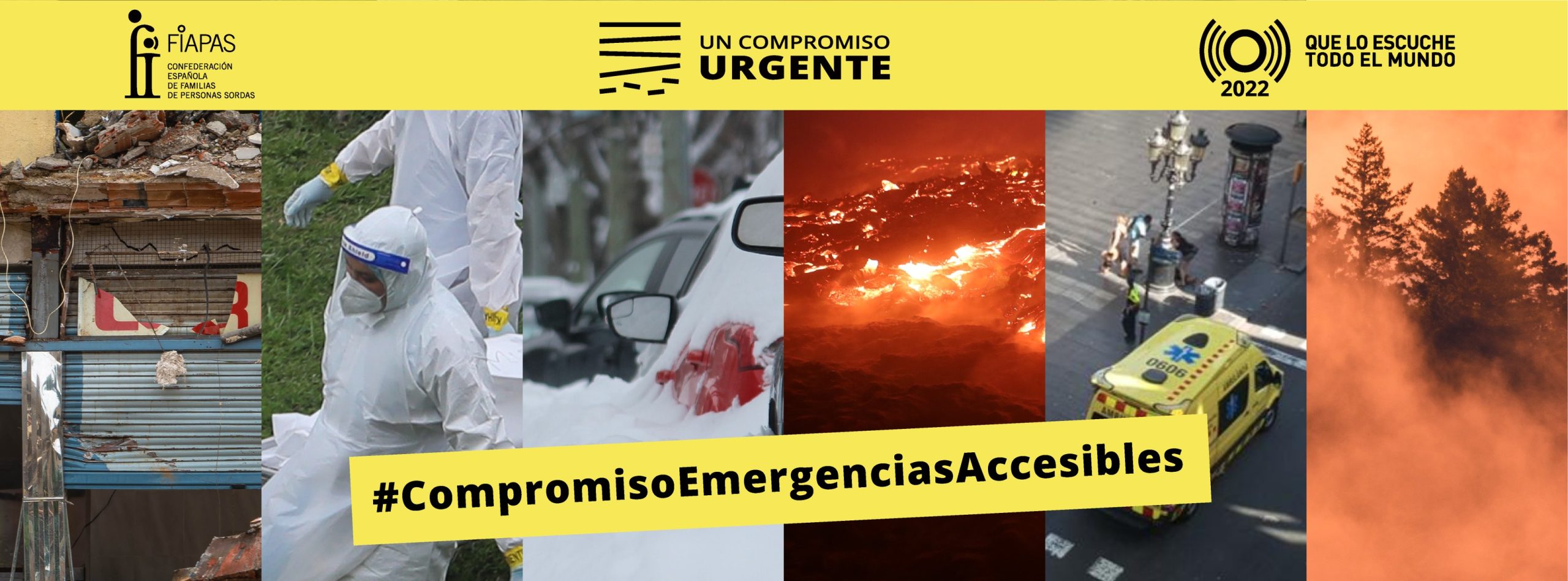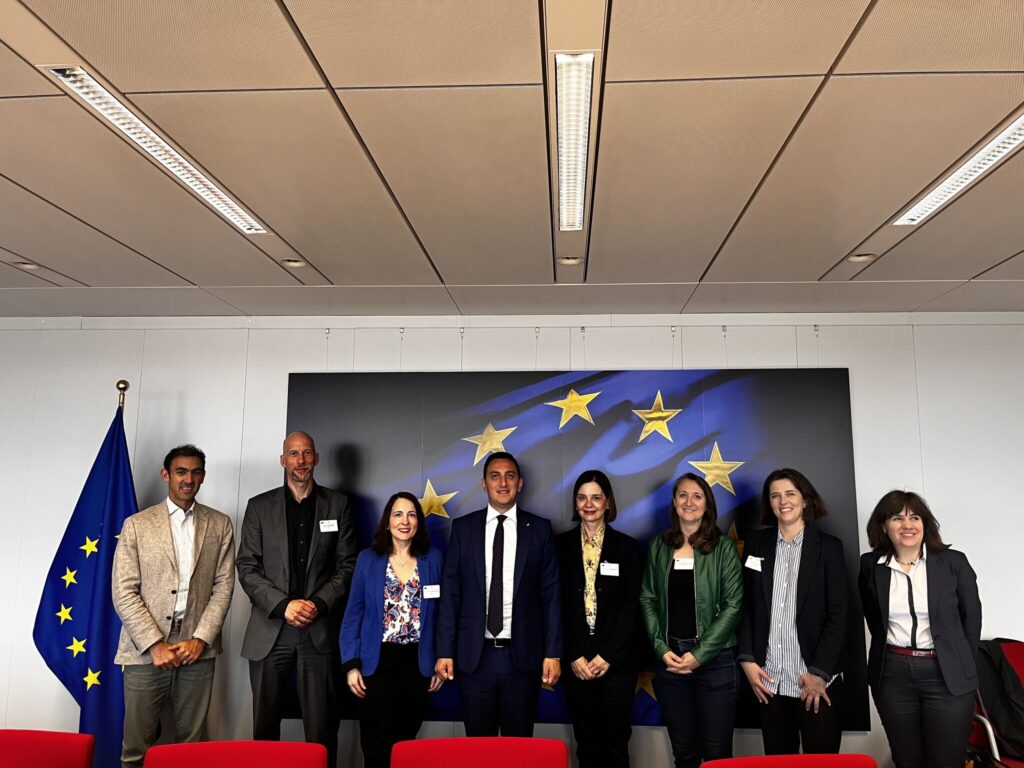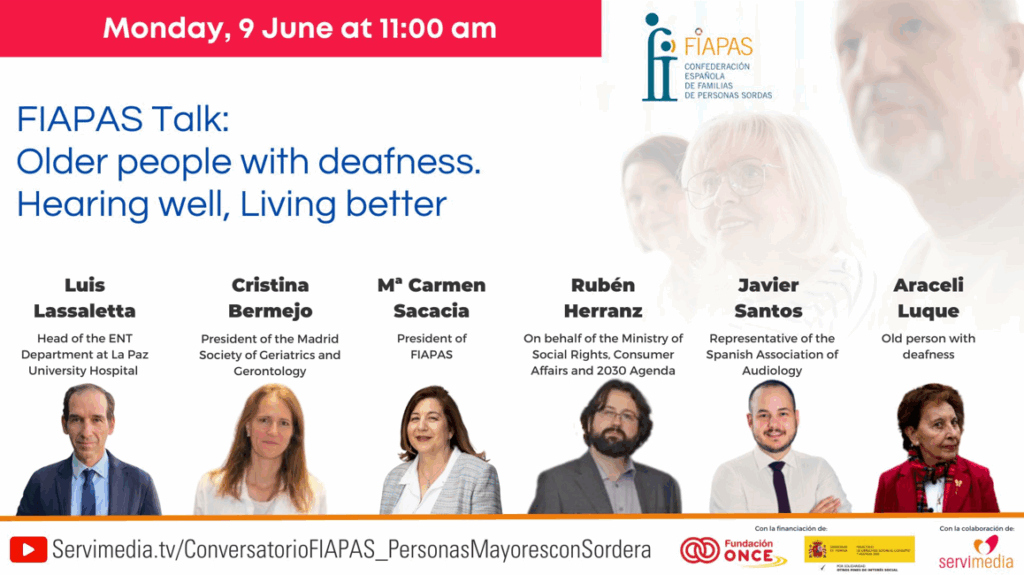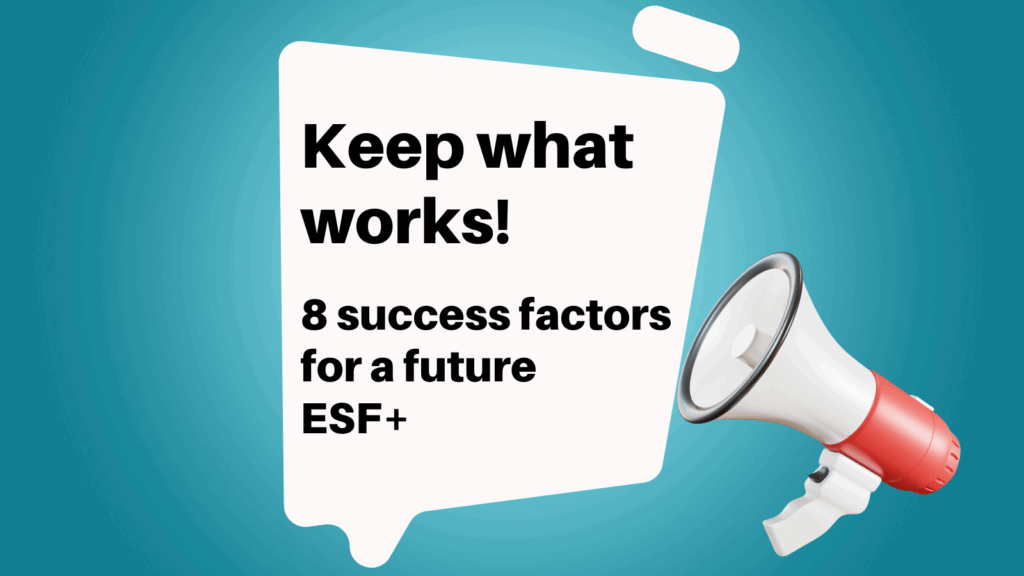Our member, FIAPAS (The Spanish Confederation of Families of Deaf People) is glad to present their new edition of the Campaign ‘Que Lo Escuche Todo El Mundo’.
The pandemic caused by Covid-19, the Filomena snowstorm, the eruption of La Palma volcano, forest fires, earthquakes and floods have highlighted the difficulties and risks faced by people with deafness in emergency situations where they have no access to warnings, information about what is happening, or the instructions given to the whole population for their safety and protection.
The lack of knowledge about people with a hearing disability and their reality has meant that, at these times, people with deafness have not been able to access, at the same time as other citizens, public appearances, press conferences, or institutional statements addressed to the general public by the different public bodies. Nor have they had access to the instructions and recommendations offered on the ground to the public in each critical situation, because they could not access the warnings and announcements made via public address and/or audio warnings.
Contacting the various helplines set by for emergency situations and the 112-emergency service from a region other than the one in which they live is, in most cases, impossible for people with deafness as they cannot use the telephone in a conventional way. Lack of knowledge about strategies for communicating with deaf people (whether by verbal language support guidelines or sign language, in the case of deaf signers), about features and functionalities of hearing aids and hearing and verbal communication support products used by deaf people. This makes it difficult to assist, rescue, evacuate and respond to deaf people in a variety of situations of risk and emergencies.
Watch the campaign video below (Spanish with English subtitles).
With this new edition campaign, FIAPAS wants to appeal directly to public administrations, the media, and security and emergency professionals, inviting them to get knowledgeable about the barriers faced by people with deafness and the necessary means to incorporate hearing and information accessibility in the forecasting and planning of their actions in contexts of risk and emergencies. FIAPAS is doing so by sharing guidelines and information on their social networks so that we can all do our bit in this
Collaborate with the campaign using the hashtags #UnCompromisoUrgente and #QueLoEscucheTodoElMundo on Twitter, Facebook, and Instagram.
More information here.





